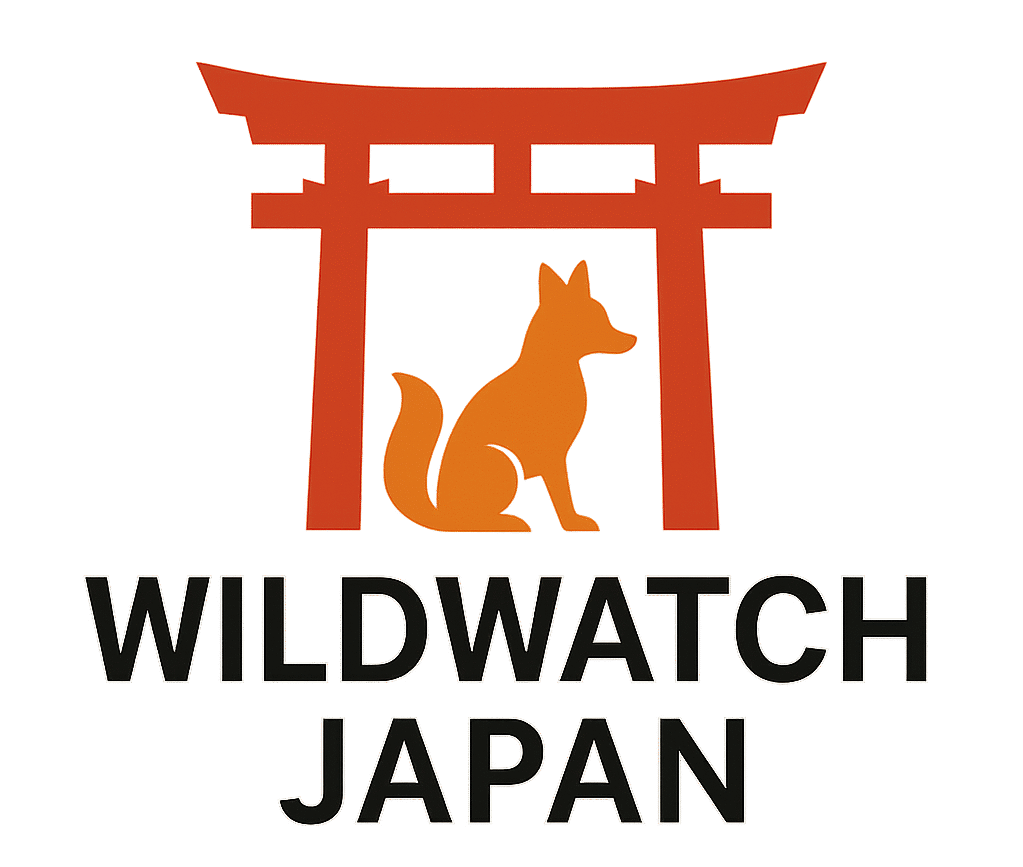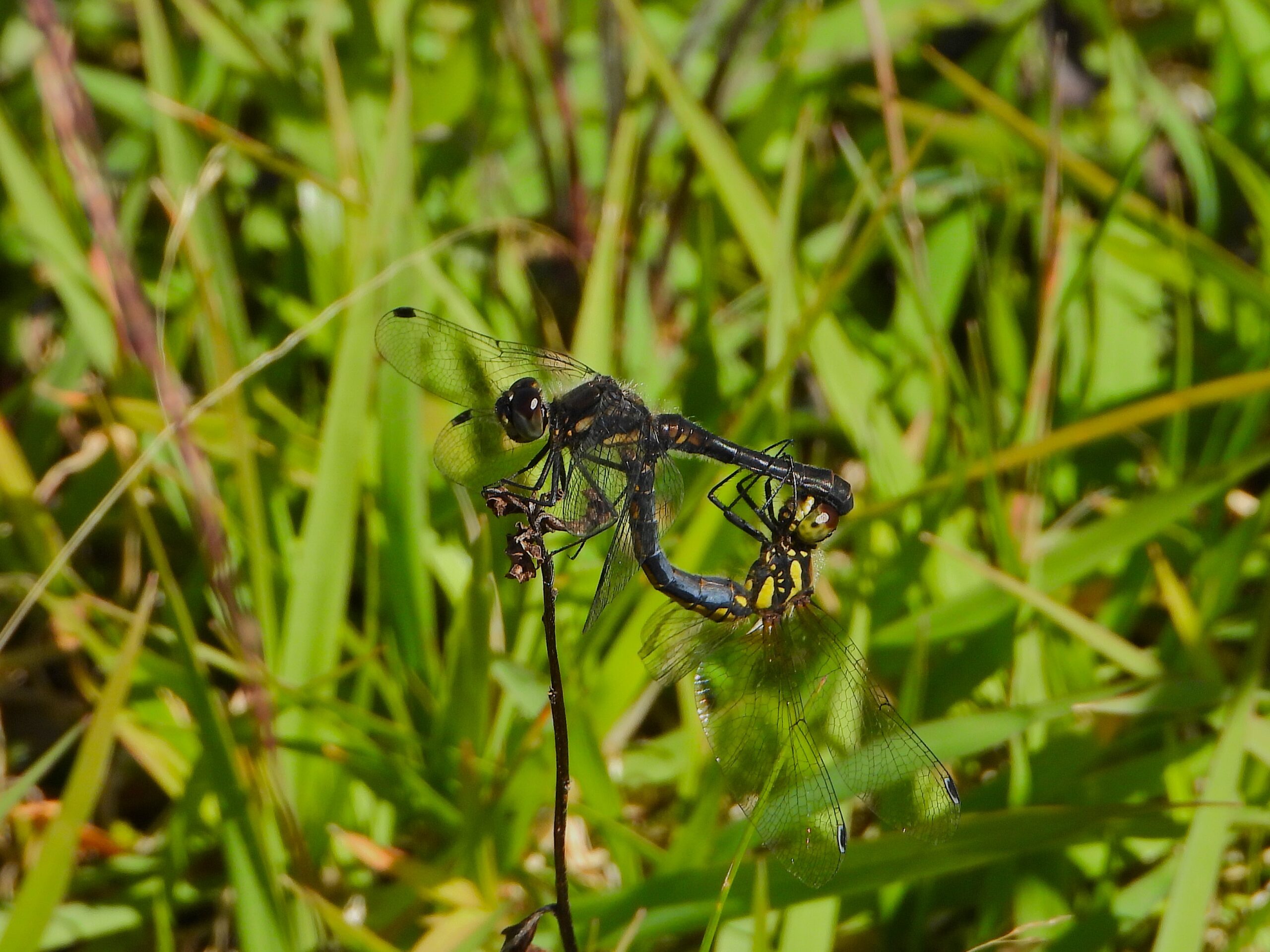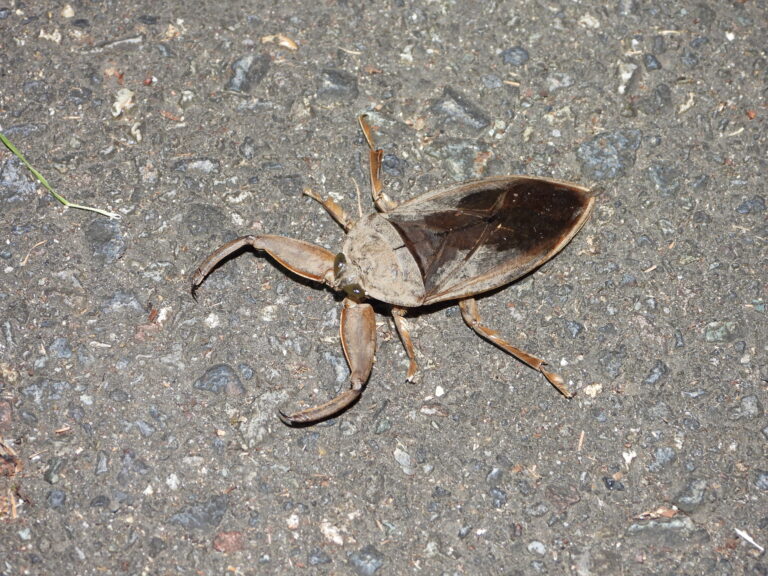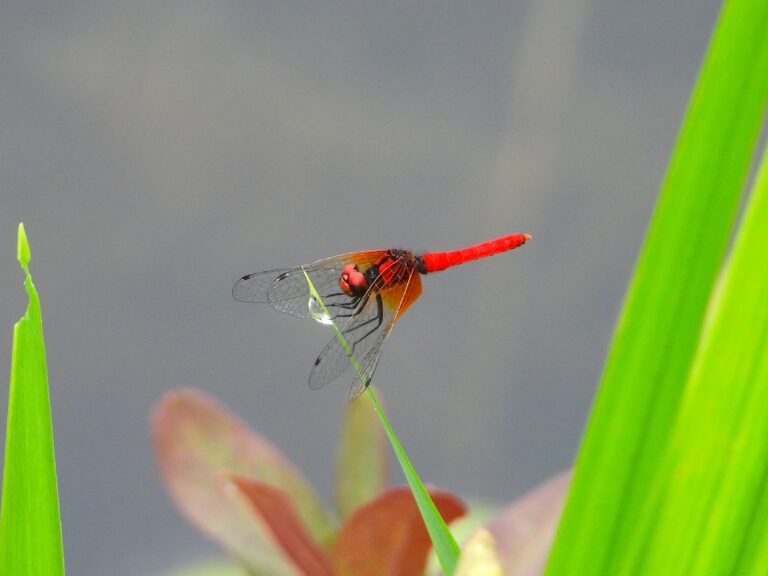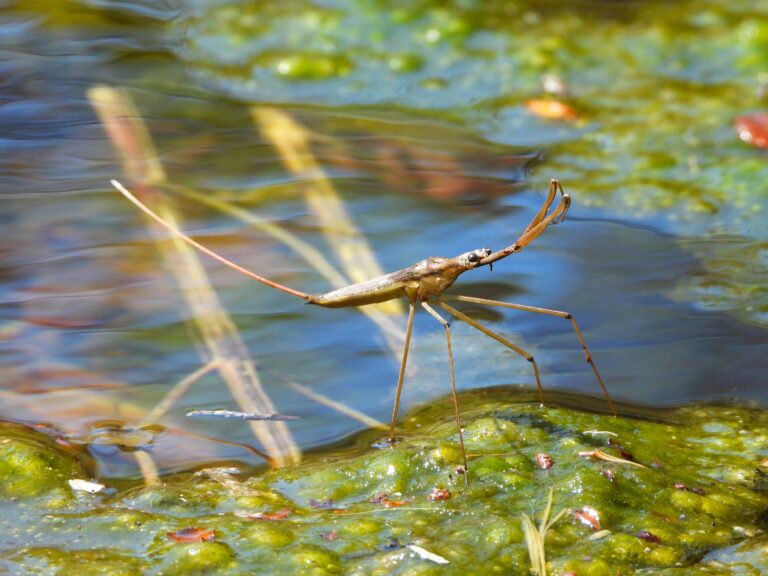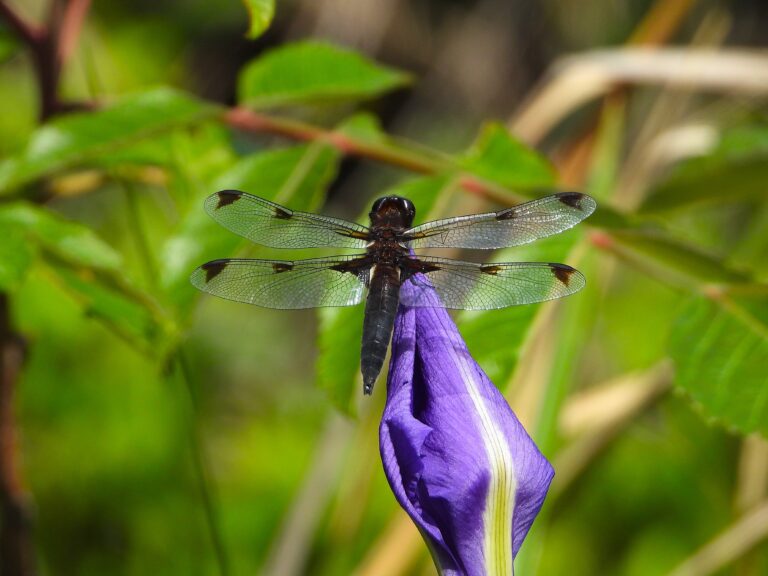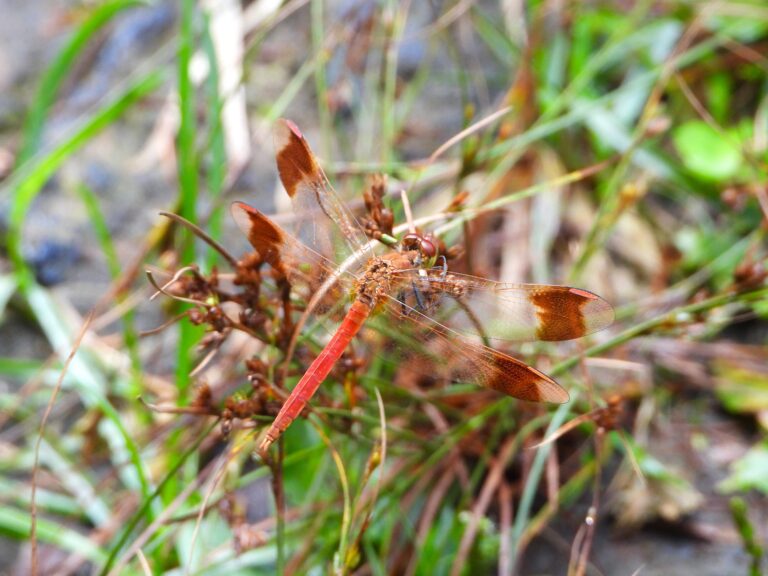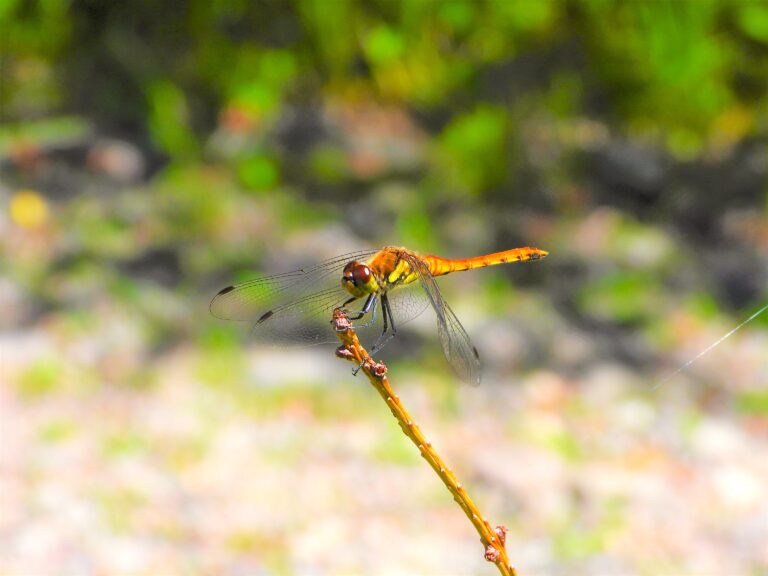Black Darter (Sympetrum danae) – Wildlife of Japan
Introduction
Despite belonging to Japan’s “akane” red-darter group, mature males turn almost entirely sooty black—hence the English names Black Darter (UK) and Black Meadowhawk (North America). It is a cool-climate specialist of bogs and fens across the Holarctic, with a limited Japanese range.
Appearance
Small darter (≈29–36 mm). Males become predominantly black with small yellow side marks; females are yellow-ochre with black markings. Both sexes have black legs and a black pterostigma; a dark, eyebrow-like facial mark is characteristic. Japanese measurements report ♂29–38 mm, ♀26–36 mm.
Habitat & Distribution
Occupies acidic peat bogs, fens, and shallow vegetated pools. In Japan it is widespread in Hokkaidō but local in montane wetlands of northern–central Honshū (recorded from Iwate, Akita, Niigata, Fukushima, Gunma, Nagano, Gifu, Toyama).
Flight Season in Japan
Adults are typically on the wing from mid-July through mid-October (some sites to mid-November).
Behavior
Often perches low around boggy pools and makes short, darting sallies for prey (typical for small Sympetrum). During oviposition the tandem pair performs rapid, forceful mud-dipping.
Diet
Adults hawk small, soft-bodied flying insects; larvae develop in shallow, vegetated water typical of bog pools.
Reproduction & Life Cycle
Pairs usually oviposit in tandem by dipping into wet mud or shallow water. Eggs overwinter, with reports of a 6–8-month egg period under cool conditions before rapid larval development the following spring–summer.
Conservation
Global status: Least Concern (IUCN). In Japan, threat level varies by prefecture: Aomori lists the species as Extinct (EX); Gunma = Near Threatened (NT); Niigata = NT, etc. Habitat loss and drainage of montane bogs remain primary pressures.
Author’s Impression
Although its name means “red dragonfly,” the Mutsu-akane becomes entirely black when mature—a mysterious species within the Sympetrum group.
